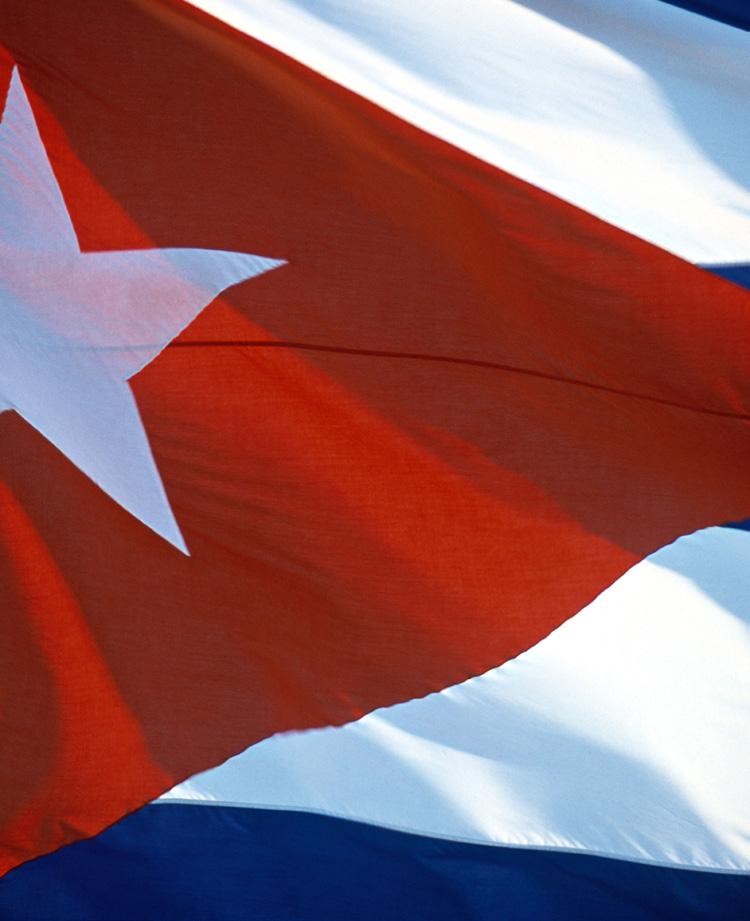
2 minute read
Cuba Poll
FIU CUBA Poll reveals support for the embargo on the rise among Cuban-Americans
A strong majority of Cuban-American voters in Miami-Dade County supported Republicans in the 2018 midterm elections, giving Florida Gov. Ron DeSantis and U.S. Sen. Rick Scott a significant boost in tight statewide races. Seventy percent of Cuban-Americans surveyed said they voted for DeSantis and 69 percent said they voted for Scott, according to the 2018 FIU Cuba Poll, the longest-running research project measuring Cuban-American public opinion. The poll was presented as part of the Green School’s annual State of the World conference in January 2019. It revealed that Cuban-Americans in Miami were evenly split on support for the U.S. embargo of Cuba – a striking contrast to the 2016 poll, where only 37 percent of those surveyed expressed support for the policy. This was the first Cuba Poll conducted since the midterms and the first since President Donald J. Trump took office. The poll showed CubanAmericans were highly motivated this election cycle, with 87 percent of registered voters turning out on Election Day. Despite the strong showing for Republican candidates, a large majority of Cuban-Americans in Miami said they continue to favor many of the policies of engagement ushered in under President Obama, including lifting of travel restrictions and increased investment in the island. “The policy preferences of Cuban-Americans are less a reflection of their party affiliation and more a reflection of the attachments that they have on the island,’’ said Professor Guillermo Grenier, the principal investigator on the project and chairman of the Department of Global and Sociocultural Studies in the Green School, the primary sponsor of the poll. “Cuban-Americans with relatives and alliances on the island are more likely to want to keep doors open.” Since Obama’s decision to reestablish relations with the island nation in December 2014, much has changed in the tone of U.S.-Cuba relations, particularly under the Trump administration. A series of “sonic attacks” reported by the U.S. Embassy in Havana in 2016 and 2017 led the U.S. to withdraw most of its diplomats and issue a travel
2018 FIU CUBAPoll
HOW CUBAN AMERICANS IN MIAMI VIEW U.S. POLICIES TOWARD CUBA
advisory for U.S. citizens.
“The mood of the community has changed in the last two years,’’ Grenier noted. “We see a community divided on the issue of the embargo while still willing to maintain and even expand business
18841_SIPA_CubaPoll_2018.indd 1
relationships established as a result of the Obama initiatives.”
The FIU Cuba Poll was conducted by telephone – cell phone and landline – between Nov. 14 and Dec. 1, 2018, using a random sample of 1,001 Cuban-American residents of Miami-Dade County, age 18 and over, with a margin of error of plus or
1/7/19 2:34 PM

minus 3 percent. Florida International University’s Cuban Research Institute (CRI) began sponsoring the Cuba Poll in 1991 to record a snapshot of the Cuban-American community at a time of major geopolitical change, including the collapse of the Soviet Union. Funding for the 2018 Cuba Poll was provided by the Green School, CRI and the Caption Kimberly Green Latin American and Caribbean Center. No external funds were used to conduct the poll.
Professor Guillermo Grenier, lead researcher on FIU’s Cuba Poll, presents at State of the World 2019.










